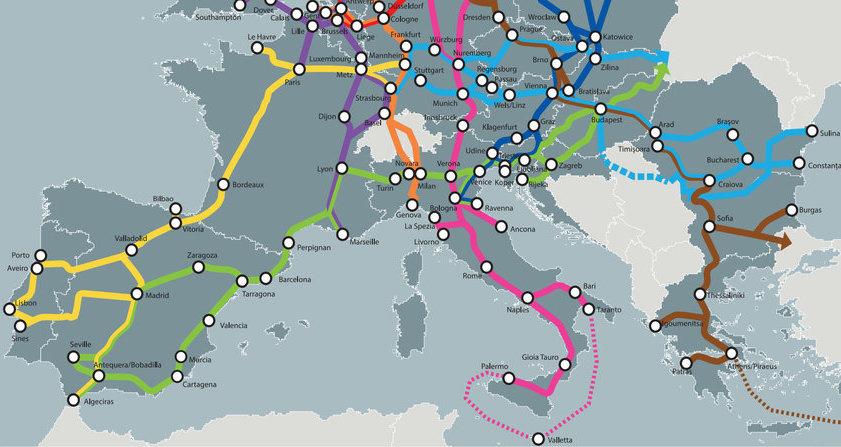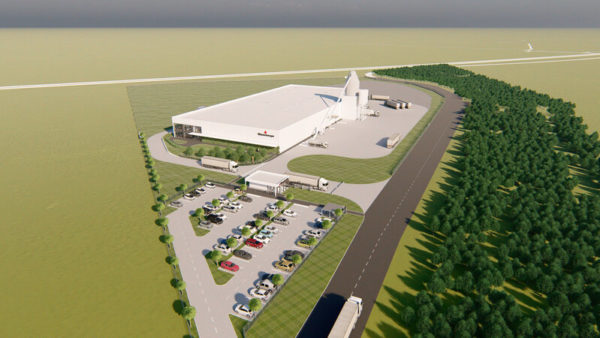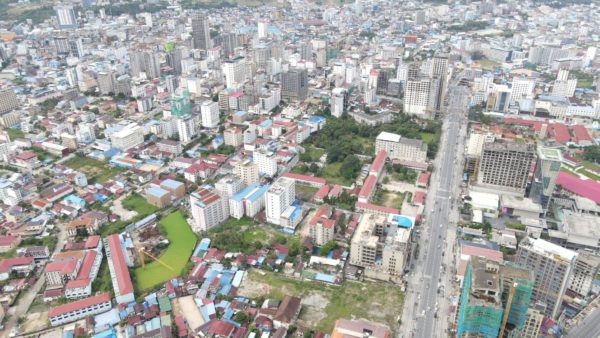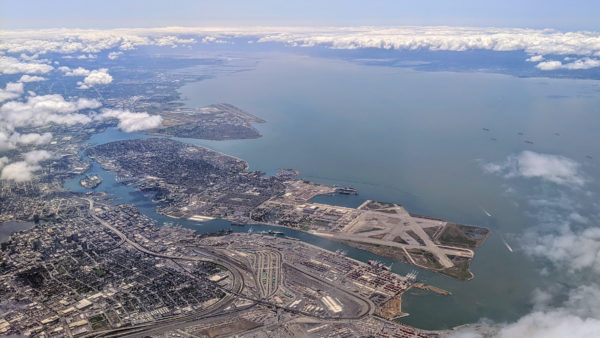The government of Catalonia has urged Madrid to expedite work on the Mediterranean Corridor, a proposed Trans-European Network (TEN) that runs the length of Europe’s Mediterranean coast between Gibraltar and the Ukraine via Budapest.
The Spanish section will include a 1,300km high-speed stretch that will connect the port of Algeciras in southwest Spain to Barcelona and the French border. Work on the section running between Tarragona and Murcia (see map) was to have begun in mid-2013 at a cost of about €1.4bn
The Strategic Board for the Mediterranean Railway Corridor met in Madrid on Monday to discuss progress on the line. This included about 100 delegates, including representatives from the parliamentary groups in the Catalan chamber, trade unions, business associations, academics, chartered institutes and city governments.
The Catalan News Agency reports that Ãñigo de la Serna, Spain’s minister for public works, blamed the delay in beginning work on the a "lack of administrative capacity". However, De la Serna promised he would prioritise the project, a pledge that had also been made by Mariano Rajoy, the prime minister of Spain, during a visit to Catalonia two weeks ago.
Josep Rull, the Catalan minister for territory and sustainability, called for a "clear and verifiable" project timetable. He said it was "time to go from just words to real facts" and insisted that Madrid keep its promises.

The EU’s TENs network, with the Mediterranean Corridor in green
Catalan wants the Mediterranean Corridor because it breaks the "radial" layout of Spain’s infrastructure, in which Madrid acts as the national hub. For example, a traveller going from Barcelona to Alicante on the country’s south coast can make faster progress if they go via the capital than if they take a direct line.
Rull said: "Centralism is absolutely inefficient for Spain as a whole and for Europe as well." He added that the territory that would benefit from the corridor produced 40% of Spain’s GDP.
The minister also called for the corridor to be included in Spain’s budget for 2017, which he said allocated fewer resources to it than that of 2016.
De la Serna insisted that the Spanish government was committed to the corridor despite the "technical and administrative problems" that had delayed work on it. He also announced that the government would put out a tender for initial works by the summer. Â
Spain has the longest high-speed rain network in Europe. Work to extend the system to Orense in Galicia, northwest Spain, will be complete in 2019.
Top image: Astom’s Alta Velocidad Española series 100R in Seville station (Savh)
Further Reading:










